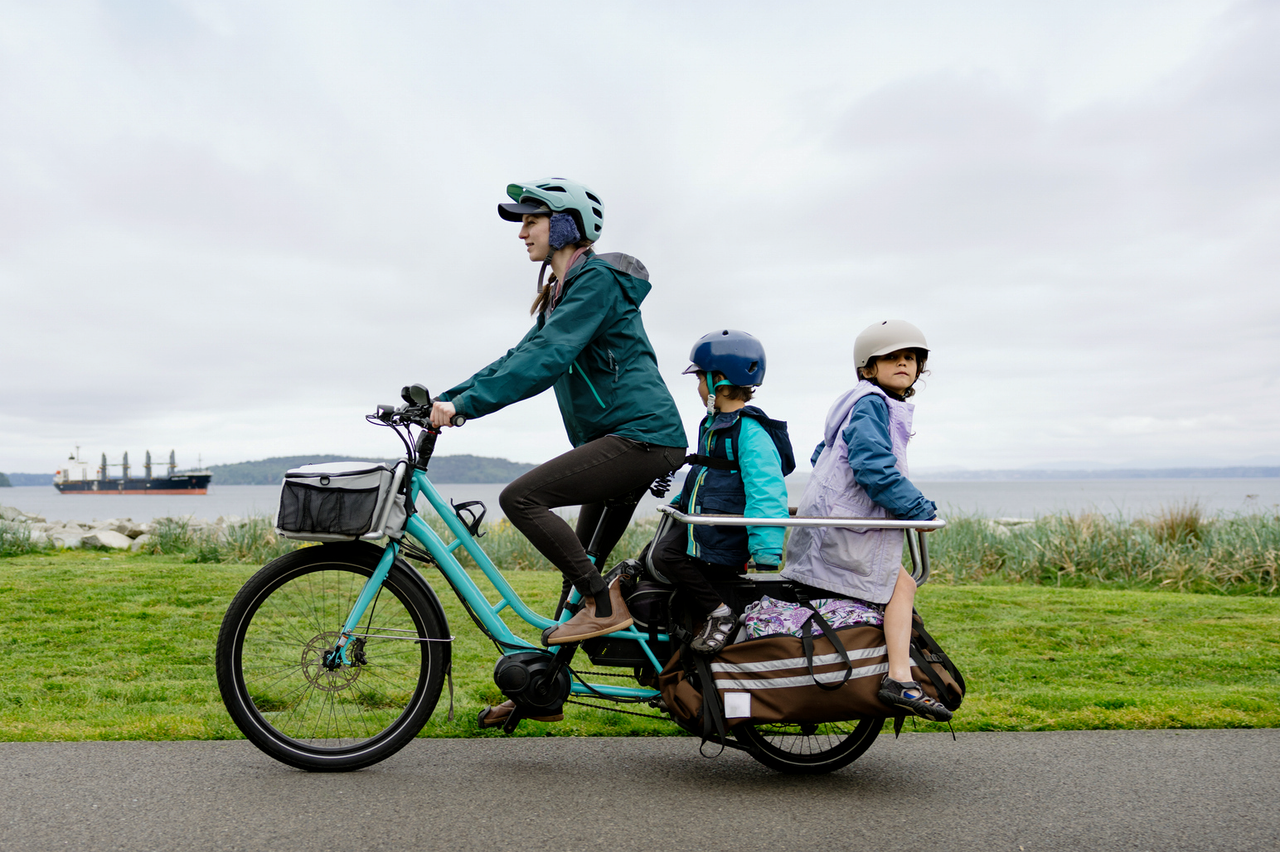Study: E-bike owners use their cars less, some get rid of their car completely
New research from Swiss university indicates e-bikes could reduce congestion and pollution in towns and cities worldwide
James Howell-Jones
Junior Writer
© Getty Images
E-bikes can keep people cycling where circumstances would otherwise see them driving
A study has revealed that e-bikes have a significant effect on how people travel.
Researchers from the University of Lausanne, Switzerland found that over half of e-bike owners use their cars less after getting an e-bike, and almost a fifth either get rid of their car completely or giving up their intention to buy one.
The results demonstrate the major impact e-bikes could have on congestion and pollution within towns and cities worldwide. Subsequently, the authors argue that e-bikes should be at the core of planning for decarbonised travel in modern towns and cities.
E-bikes replace a range of transport options, for all kinds of journey types
The study, which was based on a survey and biographical interviews of e-bike owners in Lausanne, Switzerland, revealed that e-bikes impacted the way people travel across all modes of transport. Alongside the headline statistic that 51% of respondents had used their car less since getting an e-bike, the study showed that 61.1% of e-bike owners used public transport less, 46% used a conventional bicycle less, and 37.5% walked less. Overall, the findings show how wide-ranging the uses of e-bikes are, and indicate that e-bikes could have a seismic impact on how people travel.
The study also explored the types of journeys that e-bikes replaced. Again, it was wide-ranging. The results indicated that in most cases, people use e-bikes both as a mode of transportation and as a leisure activity. 58.7% used their e-bike for a combination of leisure and transport, compared to just 9.2% of respondents who use their e-bike strictly for recreational purposes, and just 32.1% used their e-bike strictly for utilitarian purposes. The results demonstrate that these bikes have the power to replace both conventional transportation and a bicycle for recreation.
Read more: 10 benefits of riding an e-bike
Among the e-bike owners surveyed, the vast majority use their e-bike for commuting, with 78.7% selecting this option. A large majority use e-bikes for leisure, with 68% of respondents saying they ride their e-bike as a leisure activity in itself, and 63% saying they use their e-bike to reach leisure activities. Shopping and services was a less popular use for e-bikes, with just 36.1% of respondents selecting it, likely due to the lack of luggage space on most e-bikes.
Almost a fifth of e-bike owners either get rid of their car or give up on the idea of buying one
With parking taking up so much space in cities around the world, the renunciation of car ownership statistics are significant. 18.6% of respondents said they renunciated car ownership, meaning that they either got rid of their car after buying an e-bike, or gave up on the idea of buying a car. If this figure holds as more and more people buy e-bikes, it stands to reason that e-bikes could dramatically reduce the demand for parking in residential areas around the world, thereby freeing up acres of space for other purposes.
Read more: How to replace your car with an e-bike
E-bikes are an entry point to cycling, and they help people keep cycling
The researchers Patrick Rérat, Dimitri Marincek and Emmanuel Ravalet highlight two main trends that emerged in their research. Firstly, e-bikes get people who are not cyclists either on a bike for the first time, or back on a bike after some time away. This reflects the common sense view that e-bikes are a fantastic option for new and returning cyclists whose fitness might be lacking.
Secondly, e-bikes enable people to keep cycling when factors like a longer commute, the need to carry a child or age would otherwise see them transition to a car. This second factor makes it difficult to measure the modal shift; these people are not transitioning to e-bikes, but rather, e-bikes are the reason they do not start driving when circumstances change. Therefore, it’s possible that e-bikes are even more impactful than the figures show.
Read more: Commuting by e-bike: 7 things you need to know
How can e-bikes change how we travel?
The study has its flaws. Although published just last month, the surveys and interviews were performed in 2018, before the COVID-19 pandemic, and before the recent trend towards e-cargo bikes emerged. Additionally, it is a fairly local survey, with all respondents based within one Swiss city.
Even so, the study gives yet more credence to the notion that e-bikes could play a significant role in the decarbonization of towns and cities around the world. This study isn’t perfect, but it seems fairly clear that e-bikes lead to fewer cars driving on the road, and fewer cars competing for limited parking spaces.
For more of the latest about e-bikes, infrastructure and transport, check our general news page and tech news page.
Latest Videos
1New SRAM Red AXS Groupset - Detailed & Demoed!

2Tubeless Inserts, Short Cranks & Track Tyres | GCN Tech Clinic

3Dumb and Painful Things We’ve Done As Cyclists! | GCN Show Ep. 592

4Not Checking These Simple Things Can Ruin Your Event

5Is The New Cannibal Getting Greedy At The Giro? | GCN Racing News Show






